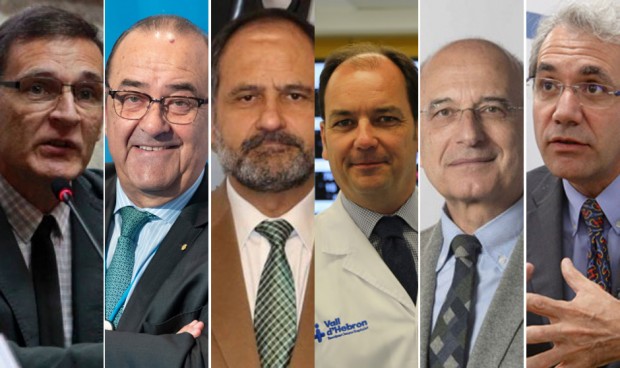Jes ديs Dís Manglano, Antonio Fernández Pro, José Polo García, Ricard Ferrer, Angel Secier, Salvador Tranche.
Six of the most important Medical scientific societies (SEMI, Semfyc, SEMG, Semergen, Semicyuc, and SEC), which represent a group of 50,000 medical professionals More than 40 percent of doctors who are part of the National Health Service – have signed a statement appearing in it Refusal to create an emergency specialization.
Nevertheless, they support “unreservedly the need to recognize professionals working in emergency services and the importance of structuring future training for these professionals,” and they are committed to developing a proposal for A specialized field of training (ACE) in the emergency department.
In their opinion, bearing in mind that the health system is “in constant transformation,” they consider this In the short term, SNS will have to “adapt” to new healthcare needs These are characterized by changes in the epidemiological pattern (chronicity, multiplicity of diseases) and the demographic pattern (aging).
“We consider that creating a health care system more fragmented with the creation of new specialties is incompatible with building a system that focuses on the needs of the patient, and aims to give each of them the personal, integrative and longitudinal attention that this may require,” they point out.
Comprehensive and continuing care in primary care
The second argument against it is that urgent care is understood as comprehensive and continuous care that is previously provided Primary care and hospitalAnd for services and devices intended for urgent care. Any of these areas, from the patient’s home to the hospital, through emergencies outside the hospital, are “part of the normal scope of the family doctor’s work.”
Third, they noted, “The diseases that are treated in the emergency department, as well as all urgent diseases, are very diverse. They are not only acute, but also chronic.” So they believe Emergency services professionals must have a ‘specialist’ profile In order to provide an adequate response to the general problems of the patients.
On the other hand, he asserts, “It is not true that there are deficiencies in the quality of care provided in the emergency services and that the lack of an emergency specialization harms this assistance.” In his opinion, “There is a high degree of training for the professionals who currently provide these services, and they are all in practice Specialist Doctors via MIR, Mostly family and community medicine and internal medicine but also intensive care and other specialties that have extensive training to deal with any emergency diseases. ”
Fifth, they consider the fact that doctors in training (MIR) must bear a significant portion of the care burden is not a scenario specific to emergency services, but a common situation in any hospital service. On the other hand, they assert that “there is no problem Legal recognition of professionals working in the emergency roomAnd they believe that “the health administration should provide legal support and determine the degree of implementation of activity in this area.”
The emergency specialty “does not solve any problem”
Likewise, in seventh place, they argue that the emergence of a new emergency and emergency specialization will not solve any of the existing problems of emergency services of an organizational and non-competent nature. “Actually, we appreciate that Establishing this specialization will reinforce the fragmented healthcare model It cannot be tolerated with the passage of time, “they assert.
Moreover, bearing in mind that urgent pathology is the responsibility of all medical and surgical specialties, they indicate that,It is not possible to place a limit between competencies Of professionals who work in emergency units, continuing care points and hospital emergency services.
“We think that A’s suggestion A specialized field of training (ACE) in the emergency department gives a more coherent response to current social needs, as well as to the organizational requirements of health services, and even to the personal needs of professionals, as they emphasize in the penultimate place.
Finally, they remember that working in the emergency room is done under a high level of stress which necessitates significant professional fatigue. “The ACE in the emergency department represents a more flexible model that facilitates the mobility of physicians in different healthcare settings (emergency situations, primary care or hospital services such as internal medicine), with benefits for both professionals and for the healthcare organization itself,” they concluded.
Although it may contain statements, data, or notes from health institutions or professionals, the information in medical writing is edited and prepared by journalists. We recommend that you consult the reader on any health-related question with a healthcare professional.

“Social media evangelist. Student. Reader. Troublemaker. Typical introvert.”

:quality(85)/cloudfront-us-east-1.images.arcpublishing.com/infobae/TEQF6EONZRFGLLLDIDD4L2O4EE.jpg)

:quality(75)/cloudfront-us-east-1.images.arcpublishing.com/elcomercio/XU32LRAEZFDDPNVHLFU3CKVBYY.jpg)



More Stories
Venezuela ranks fourth in female leadership in science and technology in Latin America
In Portuguesa and Sucre they explore the wonderful world of science
The university court overturns the expulsion of two teachers and a chemical sciences student